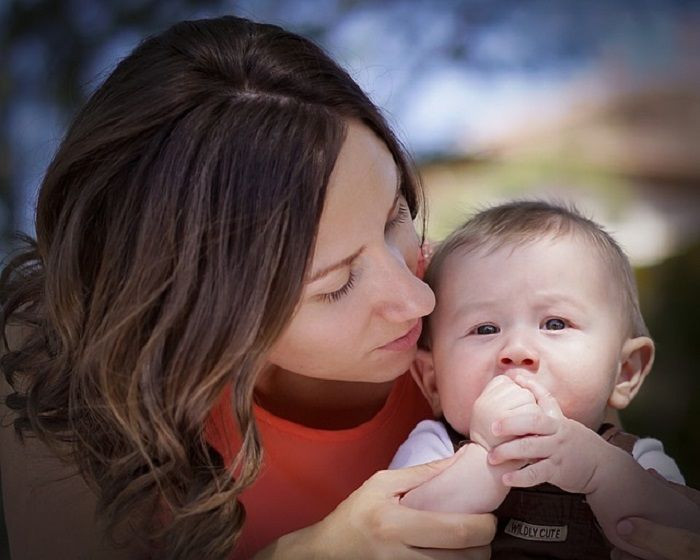For Young Children, Words Are More Powerful Than Physical Cues To Get An Adult's Attention

The saying, “a picture is worth a thousand words,” refers to the notion that an image can effectively convey so much more meaning than words, but new research published in Evolutionary Psychology suggests that isn’t the case when it comes to young children.
Babies and young children’s survival is strongly dependent on adult care, and their use of physical and cognitive cues are instrumental in ensuring that their caretaking needs are met. However, the current study found that “one word is worth a thousand pictures” when it comes to young children influencing and eliciting adults’ nurturing spirit. This means cognitive cues, or words, are more powerful than appearance in how adults feel about and respond to children.
"From an evolutionary developmental perspective, our study shows that physical cues like big doe eyes, cherub-like cheeks and large round heads — typical baby traits — are more relevant to adults during infancy than during the preschool period," researcher Dr. David Bjorklund said in a statement. "In preschool, with the spoken language, the verbalized expressions of children's thoughts become the principal cues influencing adults' perceptions."
Researchers compared the adults’ reactions towards physical maturity, reflected by faces with different degrees of maturity; and cognitive maturity, reflected “natural” cognition such as a child overestimating his or her abilities; and “supernatural” cognition, such as when a child attributes animate characteristics to an inanimate object.
Using a face-morphing software program, researchers altered eight pictures of boys and girls aged 6 to make them look younger (between 4 and 7 years old), and older (between 8 and 10 years old). The adult study participants were asked to select which of the two hypothetical children (younger or older) best reflected a series of traits: Cute, friendly, likely to lie, smart.
Researchers found that in children between the ages of 4 and 10, cues of cognitive immaturity were more effective in influencing adults’ judgements or gaining their attention than physical cues. For example expressions of immature thinking like, “the sun didn’t come out today because it’s angry,” garnered a greater positive effect and were more likely to attract adults regardless of whether or not this sentence was paired with an immature or mature face.
“Our results indicate that children's thinking is the more important cue to their maturational status and attributions of positive and negative affect than facial appearance," Bjorklund said. "As children enter the preschool years, additional cues become available to assess a child's maturational status, among them language and the type of cognitive abilities that children express via language. It is during this time that children's verbalized thinking becomes the most reliable source of information for adults about children's psychological characteristics, with physical appearance assuming a more secondary or complementary role."
The findings demonstrate the significance of cognitive information over physical cues when adults evaluate or interact with young children.



























